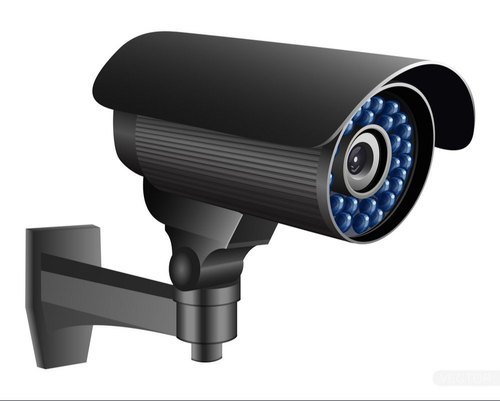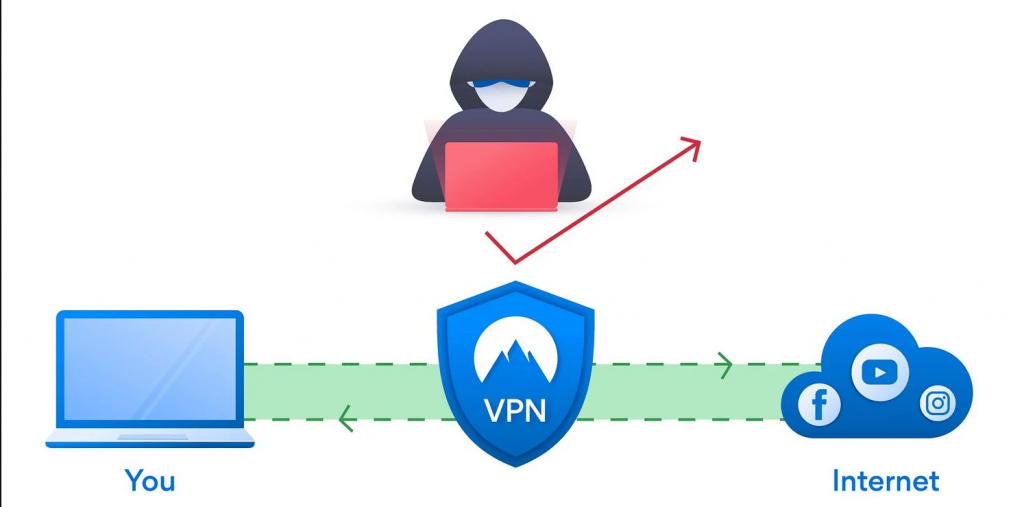
Every time you connect to the internet, you expose yourself to hackers and cybercriminals who may steal everything from your personal information and browser history to your financial information. Will be completed.
As a result, you may have opted to utilize a VPN to protect yourself online. But, in the long term, is it a secure strategy to preserve your privacy?
What information does the VPN conceal?
Someone who connects to your Internet Service Provider (ISP) may see everything you do online. Your internet service provider may look trustworthy, but it may disclose your browsing history to advertising, governments, cybercriminals, or other parties. Cyber-attacks can potentially affect ISPs. Your personal information and personal information may be compromised if hacked. A VPN can help conceal this.
How does a VPN function?
A VPN conceals an IP address by routing it through a specially configured remote server operated by the VPN host. When you use a VPN to access the web, the VPN server serves as the data source, so your ISP or another third party cannot see the websites you visit or the information you submit.
A VPN, in essence, functions as a filter, rendering all data it sends and receives utterly unintelligible. It will not assist if someone obtains this information.
Why Are Free VPNs Not the Best Security Option?
Although some expensive VPN services retain thorough logs of user databases, all free VPN services do. These are normally classified into two types: connection logs and activity logs, both of which might threaten online security. As a result, free VPNs prefer to maintain these logs. This will be covered further in the essay. These logs contain information such as internet activity, data use, shopping patterns, connection timings, and even IP addresses (which disable the entire VPN point). Of course, most well-known VPN providers claim to have a “no-log” policy but proving this is tough.
VPN does not protect customers from the majority of cyber dangers

It is critical to note that VPNs do not function as full-fledged antivirus software. They can only disguise IP addresses and encrypt browser history. You are not totally secured, for example, if you visit a phishing website or download a compromised file. Even while utilizing a VPN, the following dangers exist:
- Trojans
- Bots
- Malware
- Spyware
- Virus
If any of these devices find their way into your system, they may do damage to your device regardless of whether or not you use a VPN. An unsecured VPN is much worse for this kind of security because its encryption is sometimes no longer that strong. As a result, the best secure method is to use a VPN in conjunction with a full antivirus software package.
Unfortunately, a few VPNs are infected with viruses, according to a check of 283 VPNs with the assistance of the ICSI Networking and Security Group. Services such as Betternet, SuperVPN, and CrossVPN had malware as part of the 38 percent of VPNs examined that validated signs and symptoms of inflammation. While this is likely with paid VPNs, it is far more likely with unsecured VPNs.
Most free VPN services track your internet activity

One of the primary reasons you would use a VPN is to protect your privacy when browsing the Internet. That is why, according to vpnMentor, 72 percent of free VPNs include third-party tracking software programs. These trackers are routinely used to collect information about your internet activity in order to present you with tailored advertisements.
So, rather than providing you with privacy, unsecured VPNs accomplish the reverse by collecting your information and selling it to the highest bidder. Although some VPNs conceal the fact that they market your information, some do declare it as part of their privacy policy, so be cautious.
Most malware is coupled with advertising, giving the impression that free VPNs lack the clear sales supply of commercial VPNs. Remember that if a product is loose, your truth is the product. It’s worth noting that trackers are only found in a few commercial VPNs (albeit some do break the restriction). So, in most circumstances, when you pay for a high-end package, you get the privacy you’re looking for.
Some of your activities are still visible to governments and internet service providers.
Both the authorities and your net issuer can see whether or not you are the use of a VPN, as their utilization is simple to detect. For international locations wherein VPNs are illegal, that is how governments can prosecute people for VPN utilization. This may want to follow you in case your tour or relocate to any such international locations and use a VPN. So, in case you are going to apply a VPN to a tour wherein VPN utilization is restricted, pay for one with the purpose to preserve your identification private. You can usually construct your personal VPN.
VPNs are prohibited in North Korea, China, Iran, Turkey, Saudi Arabia, Vietnam, Myanmar, Syria, and Russia, to name a few nations. As previously said, if you use your VPN in certain nations while traveling, working, or living as a digital nomad, you might be in trouble; it makes no difference if you are in a foreign country.
However, if using a VPN in your country is legal, this is unimportant. What you should keep in mind is that while the government can see that you’re using a VPN, they can’t see what you’re doing online, your internet history, or your current IP address. Your VPN encrypts all of your data unless (as in the US) a VPN provider is issued a warrant and court order to divulge your information; your ISP or other comparable parties may view your data for legal purposes in certain instances.
While certain VPNs housed in specific countries have stricter privacy rules, it is fairly assured that a free VPN will not hesitate to provide your information.
So, what exactly should a good VPN do?

These are the three things you should expect from a VPN service, and if you insist on a free VPN, make sure they include these if you want one that actually protects your privacy:
Look for Record Encryption.
A VPN must not leave any traces, such as Internet history, search history, or cookies. Cookie encryption is crucial because it prevents third parties from reading sensitive information such as personal data, financial data, and any other content provided to websites that you do not want to leave a trail that leads back to you.
Search for Emergency Switches
If the VPN connection fails unexpectedly, the security of the connection is lost. A decent VPN should detect this unexpected idleness and stop pre-selected apps, decreasing data exposure.
Search for the Host Nation.
This is the most important of the three for your privacy. If you must, choose a free VPN provider based in a country with strict privacy regulations, such as Switzerland or Germany. However, avoid the “five eyes” nations at all costs (the US, the UK, Canada, New Zealand, and Australia).
Select a Reliable VPN Service Provider
Choosing a trustworthy VPN provider is critical if you want to share your internet surfing data while maintaining the maximum level of protection. The most critical aspect of selecting a VPN, whether free or premium, is ensuring that the permissions and privacy policies are real. Because not everyone can afford a VPN subscription if you must use a free one, read the privacy policy to understand where its logs and data end up and browse the internet knowing you don’t have perfect privacy.
Of course, all VPNs require access to your network and the Internet, but some want superfluous mobile rights, such as the ability to read the phone’s status or identification. This sort of access may jeopardize your data. Others, such as marketing firms, share your browser history with third parties. So, now that you know this, hunt for a VPN that meets your requirements.
